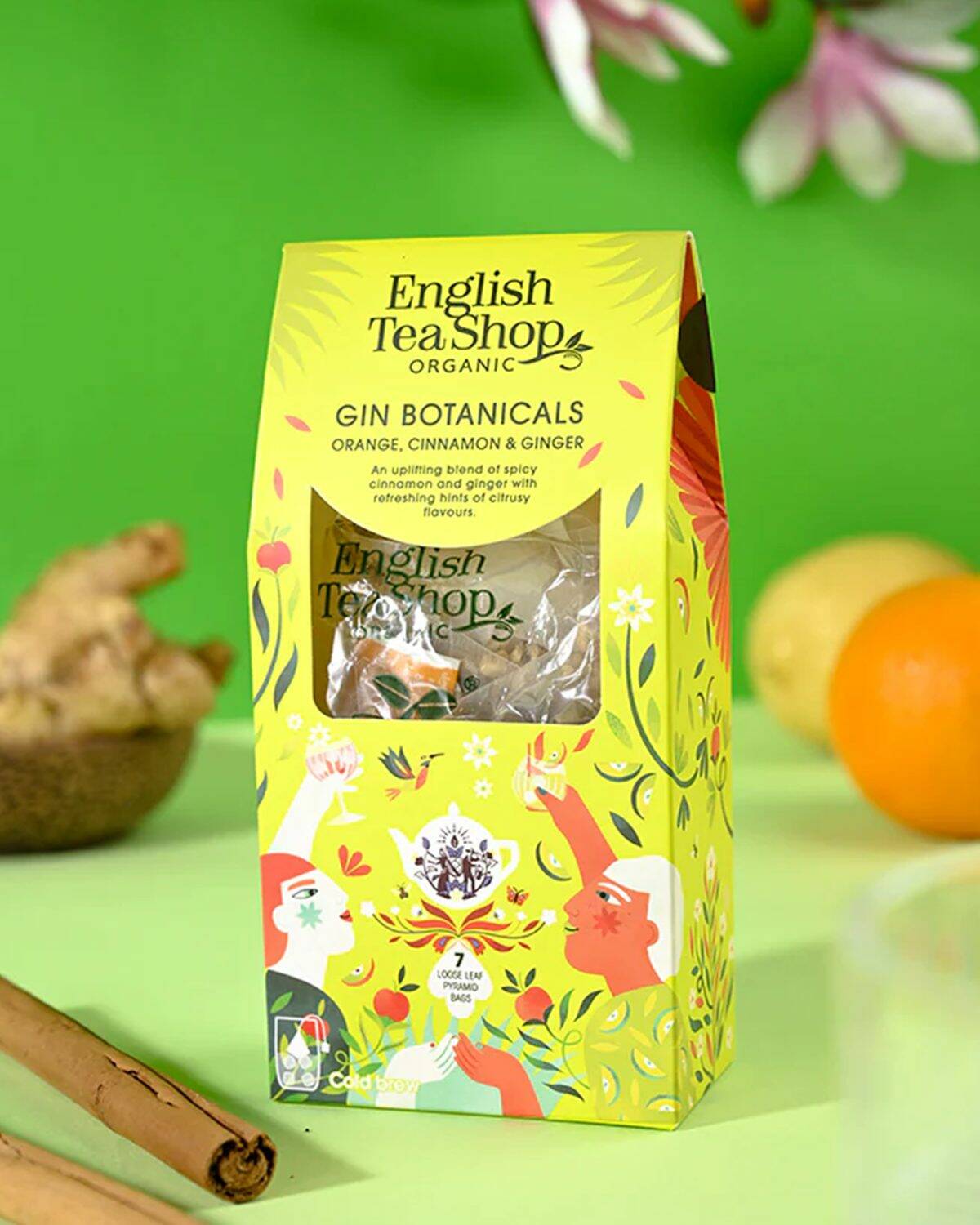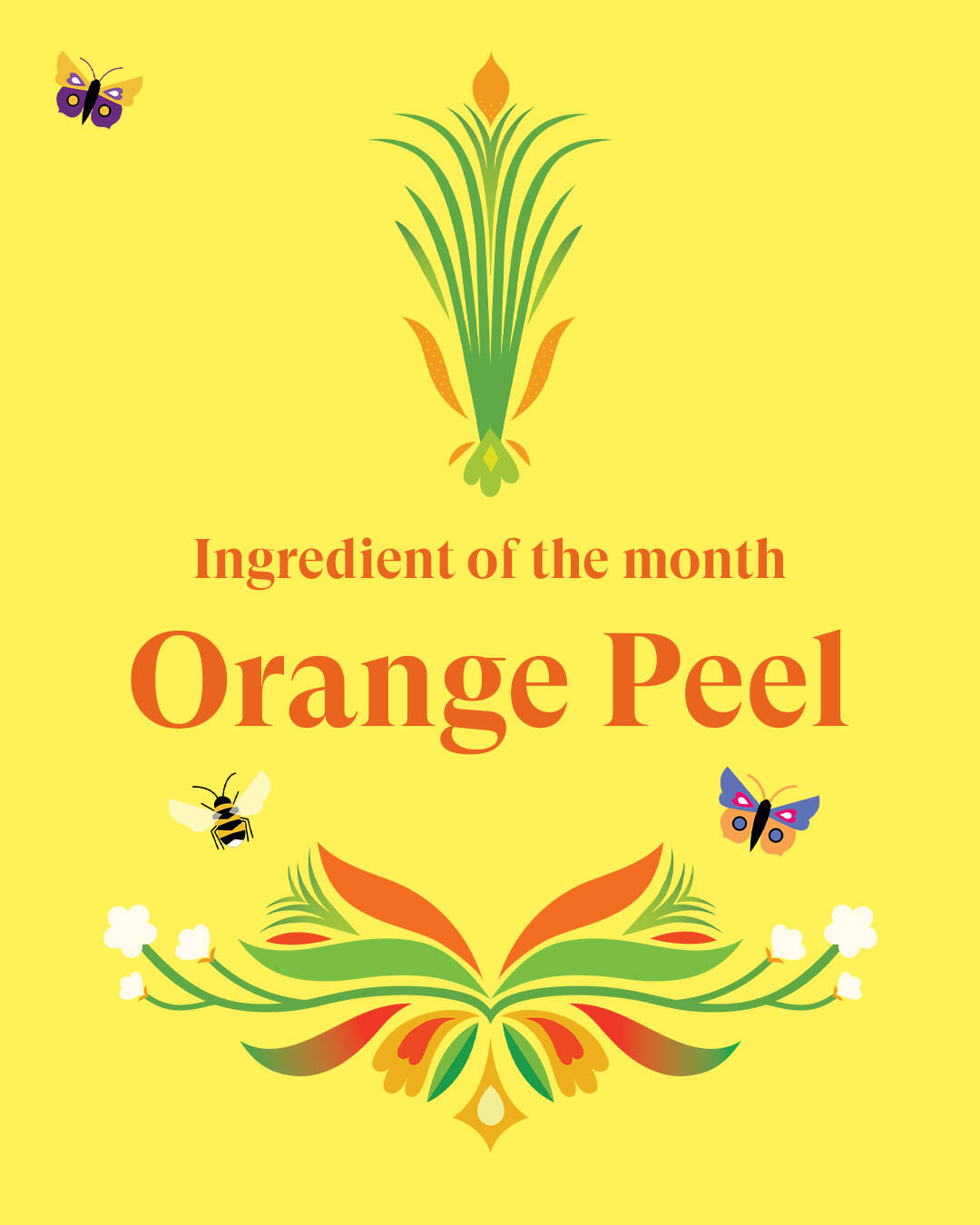The leathery, oily peel of oranges is not something to be discarded. It has many of the same health properties as the fruit itself plus some surprising extra uses. Best of all, it gives a bright, zesty, slightly sweet lift to tea and other infusions.
Part of the citrus family, orange trees are known for their sweet-smelling blossom and juicy fruit.
They originate from Southeast Asia but have been cultivated in many other sunny regions for hundreds of years.
Our orange peel is sourced from the native green orange variety citrus aurantium, grown by our organic farming communities in the Tangalle District of southern Sri Lanka.
Fun facts
Though Florida and Seville are among famous producers, a third of the world’s oranges come from Brazil.
Some trees can produce fruit for over a century.
Oranges represent good fortune in China and are among symbolic gifts given on New Year’s Day.
Food and drink
It is not only the fruit itself which is popular in food and drink.
Chunks of orange peel are integral to marmalade. The rind is also a source of pectin, which helps jams set.
Orange rind can be simmered with sugar and water then dried to make candied peel to decorate cakes, use as an ingredient in Christmas puddings, fruit cakes and hot cross buns, or to gift as a sweet treat.
Orange peel is also used to garnish several cocktails, notably old fashioneds and negronis, mixologists twist them first to expel orange oil into the drink.
Household hints
•Dried orange peels are used to produce essential oil. They’re also a natural air freshener, popular in potpourri.
•When brown sugar clumps, adding orange peel reintroduces enough moisture to loosen it.
•Citrus peel contains limonene, used as a natural insect repellent and in household cleaners for its grease-busting properties. The pithy underside of peel can meanwhile be used to polish wooden furniture.
•In the garden, the peel from half an orange can be used as a biodegradable pot for seedlings. Cut smaller, peel can also aid composting by boosting nitrogen and, when dried, can help repel pests like ants, aphids, slug and snails.
•For barbecues, dried orange peel makes a surprisingly effective fire starter.
Healthy habits
Oranges, including their peel, are famed as a source of vitamin C, which prevents scurvy, aids iron absorption and may support immunity. They also provide antioxidants and contribute vitamin A, which is important to vision and cell growth.
Besides providing vitamins, an orange peel infusion can help digestion and support healthy gut bacteria. It will also contain potassium, which has a role in regulating blood pressure and supporting the nervous system.
Orange, Cinnamon & Ginger Gin Botanicals

Real organic orange peel is a key ingredient in our Orange, Cinnamon & Ginger infusion bags, part of our summery Gin Botanicals range. Also featuring organic cinnamon, ginger, lemon peel and a touch of clove, the blend makes for an uplifting spicy treat.
Our gin botanicals are perfect for entertaining or giving as gifts. Simply brew one pyramid infusion bag in 50ml of gin for five minutes, add ice and top up with tonic for a cooling cocktail on a summer’s day.
For something warming, why not also try our Lemongrass, Citrus & Ginger tea blend, to which orange peel contributes a bold, balancing twist.
